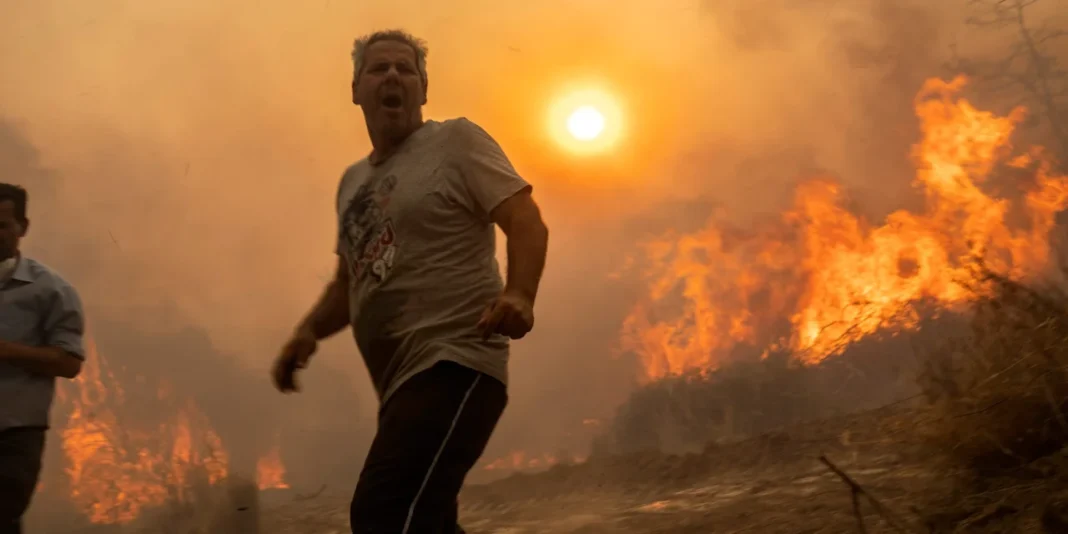United Nations Headquarters, July 30: In a stark warning to the world, United Nations Secretary-General Antonio Guterres proclaimed that the era of global warming has drawn to a close, and a new and alarming phase, the “era of global boiling,” has emerged.
This declaration comes as scientists confirm that July 2023 is well on its way to becoming the hottest month ever recorded in human history.
The implications of this unprecedented heatwave are dire. Guterres emphasized the urgency of the situation, stating that while there is still a chance to limit the global temperature rise to 1.5 degrees Celsius above pre-industrial levels, such an endeavor would necessitate immediate and drastic climate action.
The past three weeks have witnessed record-breaking temperatures worldwide, leaving no doubt about the severity of the crisis at hand.
The World Meteorological Organization (WMO) and the EU’s Copernicus Earth observation program attribute this extreme heat to the relentless burning of fossil fuels, which has unleashed violent and erratic weather patterns.
July’s scorching temperatures have been so extreme that scientists predict this month will go down in history as the warmest globally ever recorded.
This is a significant development as Earth’s temperature has momentarily surpassed the internationally accepted goal of limiting global warming to 1.5 degrees Celsius. While this threshold has been breached before, never has it occurred during the month of July.
The impact of this ‘global boiling’ has been felt across continents. Vast regions of North America, Asia, Africa, and Europe are experiencing what Guterres described as a “cruel summer.”
The repercussions are not confined to specific areas but resonate across the entire planet, pushing it further into a state of disaster. Scientists leave no doubt in their assessment – ‘humans are to blame for this escalating catastrophe’, dismissing some claims of climate change being an exclusively natural process.
Several factors have contributed to this alarming situation. Ocean temperatures are on the rise, and the Central Equatorial Pacific Ocean’s transition from La Niña to El Niño conditions has amplified the heat.
It was widely expected that temperatures would be warmer than in the last three years when La Niña prevailed. However, the intensity and extent of this year’s heatwave have exceeded all predictions.
The consequences of this extreme heat are manifesting in different ways across the globe. For instance, in northwest China, temperatures have soared to a staggering 52°C. Greece is grappling with wildfires, while the Southwest USA is suffering from extreme heat.
India has experienced unusually high rainfall, partly due to the warm air increasing atmospheric capacity to hold moisture, resulting in devastating floods.
Guterres called for swift political action to address this escalating crisis.
He expressed dismay at the level of fossil fuel profits and the inadequate response to climate change, urging leaders to act decisively and without delay.
“The air is unbreathable, the heat is unbearable, and the level of fossil fuel profits and climate inaction is unacceptable. Leaders must lead. No more hesitancy, no more excuses, no more waiting for others to move first. There is simply no more time for that,” he declared.
While some progress has been made in certain sectors, such as the robust rollout of renewable energy sources and positive steps taken by the shipping industry, Guterres stressed that these efforts are not enough.
The rapidly accelerating temperatures demand accelerated action to mitigate the devastating impacts of climate change.






